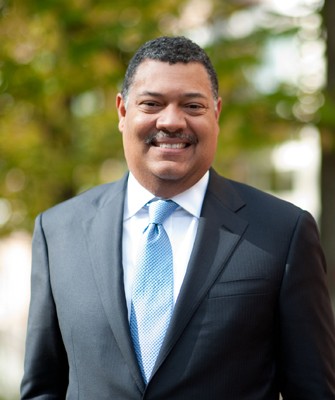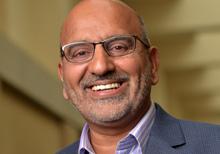In the wake of last week’s bombings in Belgium, Turkey, Pakistan, and elsewhere, Contending Modernities asked the chairs of the Global Migration & New Cosmopolitanism working groups to react. Under the leadership of Vincent D. Rougeau, Angus Ritchie and Robert Hefner, Global Migration & New Cosmopolitanism working groups have examined patterns of contentions and cooperation in several the tumultuous urban centers of Europe and North America. Additionally, Contending Modernities Co-Director Ebrahim Moosa commented on the imbalance of media coverage.
VINCENT D. ROUGEAU and ANGUS RITCHIE
Once again we have witnessed the senseless murder of innocents, this time in Brussels, at the hands of those claiming allegiance to Islamic State. Despite yet another tragedy, we must remain steadfast in our understanding of who we are and what is at stake in our response to terror. By anticipating that we will scapegoat Muslim minorities in Europe and North America as somehow responsible for these attacks, Islamic State means to drive us into submission. They hope that we will see this terrorism as an existential threat to our way of life, and they have some very prominent politicians helping them to make that case. But this is not an existential threat, We have faced and fought terrorism before and we can do it again. What we cannot do is surrender ourselves to lives controlled by hate and fear.
ROBERT HEFNER
By sheer coincidence I traveled to Paris three days after the November 2015 ISIS attacks, for long-scheduled follow up research for the Contending Modernities project on Muslims, Catholics, and secular perspectives on the challenges of pluralist co-existence in Western Europe today. A few weeks later, on January 14, 2016, I found myself driving across downtown Jakarta to speak about a related Contending Modernity project (on pluralist co-existence in Indonesia) at the Maarif Institute for Culture and Humanity, a leading Indonesian Muslim democrat think-tank. En route, and a couple of miles away from my car, a small band of ISIS extremists attempted to enter a shopping mall and carry out their trademark mass slaughter. Fortunately the attackers were stopped by the quick and courageous action of Indonesia’s anti-terror police. My Indonesian hosts that day were shaken but quietly defiant. Since then, the world has had the sad opportunity to witness additional acts of ISIS terror in Brussels and Lahore. There will be more.
Like most of us, my first impulse in response to these awful acts inclines toward the ethical, humanitarian, and spiritual rather than scholarly. However, my coincidental travels near the sites of recent ISIS attacks, and the local commentaries we all have heard from Brussels and Istanbul to Lahore, do inspire a few thoughts. The first is that we have entered a new age of trial with regard to ISIS, one that is global and certain to persist for years to come. There will be further acts of violence, some perhaps on a scale more awful than those we’ve recently witnessed.
The second lesson, perhaps no less obvious, is that the breadth of this threat should unite people of all faiths and pluralist convictions. The clear basis for that unity is the recognition — heard so clearly in the comments of Indonesian colleagues in January, and in the pained but poignant observations of Pakistani authorities after the Lahore attack this week — that we share a common challenge and, notwithstanding local variation, a common moral civilization. It may strike some readers as odd to invoke the term “civilization” in today’s context, not least after two decades of hoary commentary inspired by the so-called clash-of-civilization thesis. The latter thesis drifted all too regularly into the type of culture-talk I don’t intend, and I hope we recognize we don’t need today. But it is time to take back that term, and make it the contemporary and ethical reality that it most truly is. For my Indonesian Muslim colleagues in January, and with Muslim educators and friends at Zaytuna College in Berkeley in early March (where, in the midst of a two-day discussion of al-Ghazali, thoughtful but anxious references to the moral threat ISIS represents abounded), this term felt necessary and right. The civilization we share today is a fragile tissue of thoroughly contemporary ideas, initiatives, collaborations, and friendships. It spans the globe, yet it is delicate and rare. It is moral more than it is material. Certainly, it has a distinctive richness and specificity in different parts of the world, and among different peoples. But across these differences we now share a wealth of commonality. Moreover, in a curious dialectic, the violence of ISIS, as well as the intemperate gush of some of our populist politicians intent on portraying Muslim citizens as problems rather than partners in a time of trial, reminds us all the more of this civilization we share and now find threatened.
We are in the early not later stages of this global trial. It will run its course differently in different national settings. But the challenge will be more quickly and effectively contained when we recognize that it is shared, as is this fragile moral civilization we are determined to defend.
EBRAHIM MOOSA
Several bombs go off in Turkish cities in a series of deadly acts perpetrated by Daesh, also known as the Islamic State. There are regular news reports in the Western media about these events. But there is no saturation coverage of families and loved ones of deceased and survivors by name as it happened after the Paris killings in November and the Brussels bombings in March. The injured and dead in London, Madrid, Paris and Brussels are humanized. Those who die in Turkey, Iraq, Syria, Pakistan, Israel/Palestine are just statistics. The fight against terrorism ought to be a noble one, to retrieve human dignity and a respect for life. In life, as in death we live in apartheid, with two kinds of humanity Us vs Them. We are now accustomed to electronic and print media that believe that thinking is a crime, common sense and humane judgment are values that will undermine their market share. This is a double standard of two humanities normalized by the media: one standard for the West versus another for the Rest is the banality of the media.
An essay written by Hannah Arendt titled “Thinking and Moral Considerations” informs these reflections. Its ringing message haunts me as I write this. I wish the cliff-notes version of her essay was on the must-read list every journalist. Arendt talks about the lessons she learned after covering the trial of the Nazi, Eichmann in Jerusalem. Arendt described Eichmann’s conduct in the horrendous violence he supervised during the Holocaust, in her now famous expression, as the “banality of evil.” Eichmann’s conduct was not some elaborate theory, according Arendt, but “something quite factual, the phenomenon of evil deeds…which could not be traced to any particularity of wickedness, pathology of ideological conviction in the doer, whose only personal distinction was a perhaps extraordinary shallowness.” Despite Eichmann’s monstrous deeds, writes Arendt perhaps controversially, “the doer was neither monstrous nor demonic” and the only characteristic she could identify in him was “not stupidity but a curious, quite authentic inability to think” (Arendt 417).
Our media today–corporations and journalists–should wonder whether they might too be called to give account for this “total absence of thinking” which Arendt identified as being the essence of what she called the “banality of evil.” Not to think is to commit a sin, says Arendt in short. An example of this absence of thinking has appeared in op-eds by perhaps well-meaning writers like Jochen Bittner, the political editor of the German weekly Die Zeit. Bittner wrote in the New York Times article “Europe, After Brussels” that: “For the sake of social peace, after the Madrid and London bombings, we told ourselves that Islam and Islamism had nothing to do with each other. But sadly they do.” Bittner’s unthinking judgment is this: “The peaceful religion can sometimes serve as a slope into militant anti-Western ideology, especially when this ideology offers a strong sense of belonging amid the mental discomfort of our postmodern societies.” Bittner does identify the poverty bubble in Brussels where immigrants live. But this social anomie is curable, while the purported slope from Islam to militant anti-Western ideology is incurable.




